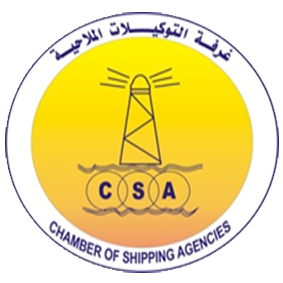In the rapidly evolving landscape of online and land-based casinos, establishing trust and ensuring safety are paramount. Modern evaluation systems, like xtraspin ratings, serve as vital tools that reflect a casino’s adherence to safety protocols and licensing standards. These ratings not only guide players in making informed choices but also incentivize operators to maintain high compliance levels, fostering a safer gambling environment. Understanding how these ratings work, what they measure, and their influence on licensing practices provides valuable insights into the integrity of the gaming industry today.
Deciphering xtraspin ratings: What do they measure in casino environments?
Key components evaluated by xtraspin ratings for casino safety
Xtraspin ratings assess several core aspects of a casino’s operations to determine its safety profile. These include security infrastructure, responsible gambling measures, financial transparency, and data protection protocols. For example, casinos with robust encryption technologies and strict identity verification procedures tend to score higher, signaling their commitment to safeguarding player information and funds.
How licensing authorities influence rating outcomes
Licensing bodies such as the UK Gambling Commission or Malta Gaming Authority set foundational standards that directly influence xtraspin ratings. Casinos holding valid licenses are required to meet stringent safety and fairness criteria. These requirements are reflected in the ratings, where licensed operators often receive higher scores, indicating compliance with legal standards. In some cases, licensing audits reveal operational gaps, which can lower a casino’s rating until corrective actions are undertaken.
The role of third-party assessments in establishing credibility
Independent organizations conduct third-party evaluations to verify a casino’s safety claims. These assessments include auditing gaming algorithms, reviewing responsible gambling policies, and inspecting security measures. Such evaluations add a layer of credibility to xtraspin ratings, reassuring players that the ratings are based on impartial, rigorous standards rather than self-reported data. This transparency builds trust and promotes industry accountability.
The impact of rating scores on licensing compliance and operational transparency
Correlation between high ratings and adherence to safety regulations
Research indicates a strong correlation between high xtraspin scores and a casino’s compliance with regulatory safety standards. Casinos that prioritize safety protocols, such as anti-money laundering measures and fair gaming practices, tend to achieve top ratings. These high scores often reflect proactive compliance efforts, including regular staff training and updated security policies, which are essential for maintaining licensing privileges.
Case studies of casinos with improved ratings following licensing audits
For instance, a European online casino underwent a licensing audit that identified weaknesses in its data security. In response, the operator invested in advanced encryption technology and staff training, leading to a significant improvement in its xtraspin rating. Such cases demonstrate how ratings can serve as benchmarks for continuous improvement, aligning operational practices with licensing requirements and industry best practices.
How ratings incentivize ongoing compliance and risk management
Casinos recognize that higher ratings enhance their reputation and attract more players. Consequently, many integrate rating performance into their risk management strategies, regularly reviewing and updating safety measures. This dynamic creates a positive feedback loop, where ongoing compliance is incentivized not just for legal reasons but also for competitive advantage.
Practical examples of rating-driven safety improvements in casinos
Implementation of security protocols prompted by low ratings
Casinos receiving low safety scores often undertake targeted improvements, such as installing surveillance cameras, enhancing access controls, or adopting biometric verification. These upgrades directly contribute to higher ratings and safer environments for both staff and players.
Technological upgrades associated with higher safety scores
Advanced technology plays a crucial role in elevating safety standards. Casinos investing in real-time monitoring systems, AI-driven fraud detection, and secure payment gateways see measurable improvements in their safety ratings. For example, the adoption of blockchain-based transaction records can increase transparency and trustworthiness, reflected positively in rating assessments.
Staff training programs aligned with rating standards
Effective staff training ensures that employees understand safety protocols, recognize suspicious activity, and promote responsible gambling. Casinos that implement comprehensive training aligned with rating criteria often see their scores improve, reinforcing a safety-first culture across their operations.
Industry trends: Rising importance of xtraspin ratings for licensing decisions
Recent studies highlighting increased stakeholder reliance on ratings
Recent industry analyses reveal that regulatory authorities increasingly consider xtraspin ratings when issuing or renewing licenses. Stakeholders such as investors, partners, and regulatory bodies view these scores as indicators of operational integrity and risk management effectiveness.
Predicted growth of rating adoption across different jurisdictions
As regulatory environments become more stringent worldwide, the adoption of standardized rating systems like xtraspin is expected to expand. Jurisdictions such as North America and Asia are integrating these evaluations into licensing frameworks, emphasizing transparency and safety as core licensing criteria.
Measurable impact of ratings on casino productivity and reputation
High safety ratings correlate with increased player trust, higher patronage, and better financial performance. Conversely, casinos with low ratings risk reputational damage and licensing challenges. This measurable impact underscores the importance of maintaining high safety standards and transparent operations, which are effectively communicated through rating systems.
In conclusion, xtraspin ratings serve as a modern reflection of timeless principles—integrity, transparency, and safety—that underpin responsible gaming environments. By understanding what these ratings measure and their influence on licensing and operational practices, stakeholders can better navigate the complex landscape of casino safety and regulation.





